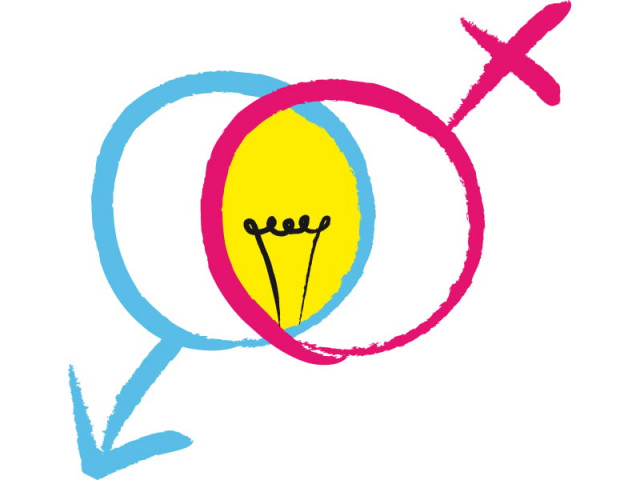Gender issues: Bring them all on board
The way forward with gender issues is to involve all stakeholders - the men as well.

The way forward with gender issues is to involve all stakeholders -- the men as well.
Where does an adolescent boy go for advice as he faces growing up? Is his father open to talking about taboo subjects with a son approaching puberty? Do young people take advice from their parents about matters that are hushed up? Can teachers, both at schools and at seminaries, be trained to guide young adults to guard themselves against exploitation?
These are important questions often left unanswered.
The people behind the Awaz Foundation Pakistan aim at connected the dots. Adopting a holistic approach that is expected to educate the masses on important issues such as gender issues, domestic violence, reproductive health and early marriages, their centre for development services plans to further intervene into thematic areas that are usually not touched upon.
In collaboration with Rutgers WPF, Awaz has launched a yearlong fatherhood campaign to involve men as fathers to bring long-term behavioural and environmental change in terms of targeted issues. Engaging fathers will be a good opportunity as an entry-point for working with men in the communities.
Starting with teaching fatherhood skills is a smart move, because this is a non-controversial issue, which will be acceptable to most men to work on. This aims at eventually strengthening advocacy efforts for required legislative reforms regarding domestic violence and child marriages.
In a patriarchal social set-up where men are the primary authority and women are relegated to the position of a subordinate, most decisions rest with men. The non-inclusion of men as stakeholders in gender empowerment efforts does not eventually yield desired results. This has serious implications on women’s health and well being, as well as on men’s health, behaviour, interpersonal relationships and gender-based violence.
“It is very important to engage men in such discussions because ultimately it is the problem of men. Until they don’t become allies, discussions cannot be held. We have to engage them in all activities and they must have their say. We practice this at Shirkatgah as well,” says Fauzia Waqar of Shirkatgah. Waqar and her team have been working on bringing men on board efforts of empowering women.
Related to empowerment of women is self-protection. Parwan is working on it. Parwan, of which Awaz is a part, is a project that is a consortium of many organisations working on similar themes. Fatima Zahra’s story is a good example of how they work. 13 year-old Zahra hails from Shorekot village in Multan. She is a student of grade-8 whose mother passed away when she was quite young. She faced problems of boys teasing her as she would walk the local religious seminary to study. After her father found out, she was stopped from going there.
After this, her aunt took a stand and took her for admission to the Al-Rafee Education High School, where she is currently enrolled. She faced the same harassment. But this time round, a teacher called Nazia came to her rescue. Nazia is a master-trainer at Parwan, which started the Life Skills Based Education (LSBE) curriculum in class. The curriculum discusses tricky issues and raises awareness. One day, during class, self-protection was discussed. Zahra opened up to her teacher, and was counseled about how to handle it. Nazia guided Zahra and other students about how to protect themselves, and also advised students to move in groups while on their way home. “I have become courageous now. The class discussion has given me so much strength that I am ready to move about on my own,” says Zahra.
The project focuses on three major millennium development goals: promoting gender equality and empowering women, improving maternal health and combating HIV/AIDS, malaria and other diseases.
Zia-ur-Rehman, chief executive of Awaz, shared that in order to safeguard themselves against diseases like AIDS, teachers of religious seminaries should be involved. “Recently, we have started involving religious leaders. For example we have some scholars speak openly about polio and its eradication. The society, in general, listens to the religious scholars and trusts them. Hence, their say is very necessary,” says Khawar.
Published in The Express Tribune, December 29th, 2013.



















COMMENTS
Comments are moderated and generally will be posted if they are on-topic and not abusive.
For more information, please see our Comments FAQ